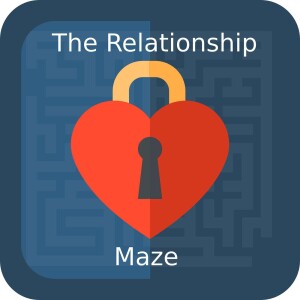
How does your attachment style influence your mindset? - Security, insecurity and rigidity in relationships and dating
 2021-12-13
2021-12-13
Send us a text
Are you aware of your attachment style in relationships? Do you know what activates you into feeling insecure in a relationship? Knowing your attachment style will be hugely beneficial in understanding how you relate to other people. In this episode we consider whether your mindset is determined by your attachment style. We ask whether an insecure attachment style is more likely to lead to a fixed mindset and conversely whether a growth mindset can contribute to changing your attachment style. We briefly discuss the four attachment styles and how they manifest in relationships: secure, anxious-preoccupied, avoidant-dismissive and fearful-disorganised. Neither attachment styles nor mindsets are set in stone - a growth mindset can contribute to developing security in relationships.
Your attachment style is your specific way of relating to other people. Attachment Theory was originally developed by John Bowlby and Mary Ainsworth. As a child you create an internal working model or template of relationships based on your experiences with your primary care giver(s). As adults we carry forward these templates; they will inform what we expect of relationships and our partners and how we respond to their behaviour. While these templates are not set in stone, they originate in our childhood experiences and get confirmed or amended with subsequent experiences in adult life.
The following are a very brief summary of the different attachment styles:
Secure attachment
You find it easy to establish strong, intimate relationships. You can share how you feel - the good, the bad and the ugly. You trust other people and are happy to both give and receive love. You can depend on your partner but also be independent.
Insecure attachment
Anxious-preoccupied: you are very concerned about being abandoned by your partner - ultimately you cannot trust anybody to stick around for long. You need quite a lot of validation and reassurance by your partner and will often be experienced as 'needy' in the relationship. You spend a lot of time thinking about the relationship, constantly analysing what has been said and what this may mean.
Avoidant-dismissive: you are highly independent and struggle with too much closeness to your partner. You easily feel suffocated and trapped. You cannot really trust anyone to be there for you in the long run so you may as well best rely only on yourself. You tend to keep your feelings to yourself.
Fearful-disorganised: you want closeness but are also highly worried about being too dependent on anybody else. You want affection but are also highly suspicious of anybody who offers it to you. You may engage in a lot of risky behaviour and may be more likely to end up in a relationship that is violent.
Contact us for information about individual counselling/psychotherapy, couples therapy, clinical supervision or CPD training.
Tom's website
Angela's website
Struggling with a lot of conflict and arguments in your relationship? Learn about communicating effectively and addressing common relationship problems in our Stop Arguing, Start Loving mini course.
Learn everything you always wanted to know about building and maintaining loving relationships in our comprehensive course The Relationship Maze, starting with understanding yourself in relationships to understanding your partner and understanding what makes for a successful relationship. We look at common causes of relationship problems and offer solutions. Learn how to address relationship problems and questions without breaking up.
More Episodes
 2022-10-10
2022-10-10
 2022-10-03
2022-10-03
 2022-09-26
2022-09-26
 2022-08-08
2022-08-08
 2022-07-11
2022-07-11
Create your
podcast in
minutes
- Full-featured podcast site
- Unlimited storage and bandwidth
- Comprehensive podcast stats
- Distribute to Apple Podcasts, Spotify, and more
- Make money with your podcast
It is Free
- Privacy Policy
- Cookie Policy
- Terms of Use
- Consent Preferences
- Copyright © 2015-2024 Podbean.com





